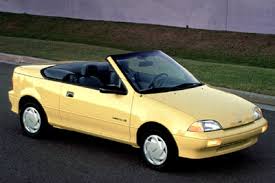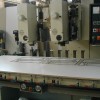Labor Unions - Bane or Boon In Today's World?
I believe that labor unions were a virtual necessity in years past - they helped correct deplorable and disgusting conditions in the workplace. But are they necessary, or even desirable, in modern America?
There is little doubt that there are still workplaces in this country that are in need of a union, or some other mechanism to stop poor conditions. The national minimum wage has helped, but not solved the wage problem. OSHA has also helped, but not solved problems with safety. Discrimination laws have helped as have other laws. Nevertheless, there are still many problems to be found for the workforce of this country. Perhaps we still need strong labor unions?
Having said that, labor unions have also created their own problems. They stifle economic competition. They are a major cause of inflation. They create labor/management discord and force decisions that are in the best interest of neither. They create another layer of politics (just what America needs!). Perhaps we need to rid ourselves of the unions?
There is a third option in the so-called right to work states where unionization is possible but very much weakened and with relatively little political backing. Or does this simply promote the problems of both strong unions and no unions without the real benefit of either?I don't believe its accurate to say that "unions are a major cause of inflation." Unions represent under 9 percent of the private workforce and around 12 percent of the total work force including public employees. During the postwar period when unions represented a much higher percentage of the workforce they were a significant inflationary factor as pattern bargaining developed in the mining, steel, rubber, auto, electrical,trucking and airline industries with each successive contract settlement trying to leapfrog the preceding ones. Now much of the steel and manufacturing industries have moved off shore and employment in the unionized companies has declined greatly.
During the postwar, Cold War years the United States criticized the USSR for not allowing workers to organize and bargain collectively. We claimed that this right was an important feature of any democratic society. Unions in Poland and other Soviet sattelite countries in East Europe, with our help and encouragement, led the way in the dissolution of the Soviet Union. The Wagner Act passed in 1935 guarantees the right of workers to organize and bargain collectively over wages, hours and other terms and conditions of employment. Unions also serve as a countervailing force to corporate lobbyists in Washington and many state capitals.I would agree that unions are not a large factor in national inflation. Local inflation, however, is often another matter. Relatively small communities with only 1 or 2 large, unionized employers can and do see local prices go beyond what the non-union employees can afford. Housing costs comes to mind, but there are many others as well. As businesses find they can raise prices and union members will still pay them, they will do just that.
I think unions have unfortunately outlived their usefulness. I beleive that people should get a fair wage but unions are many times getting twice what nonunion workers get.
On right to work states
That is one of the stated reasons that Boeing is located a second 787 line in Charleston instead of Washington.
The garbage union in Seattle recently struck and with benefits the average worker is making $109K a year (Now that is the companies numbers). I dont begrudge anyone anything but with competion domestically and abroad the way it is I dont think we are going to be able to afford to pay people as much as we are now.Unions have not outlived their usefulness.
At what point should any person, union or not, say "OK. You shouldn't have to pay me this much, it's not fair to everybody else."
Nobody blinks an eye when it's a white collar worker who is getting a nice fat salary. Is it a class prejudice thing?
Many unions in my area have taken voluntary pay cuts in this bad economy. They are not the evil greedy people that some see them to be.
Employers are as responsible for the contracts as the unions are. Both sides sign the same paper.
There are problems that need to be solved, but eliminating unions is not the way to do it.
(I'm not biased - I'm a non-union worker.)
White collar workers generally negotiate their own personal salary. If the company thinks it's too much they don't hire him/her. Presumably the company agrees that he's worth it.
In strong union states, however, the negotiation with a union always includes the implicit, if not direct, threat that the union will shut the company down if they don't sign. It may be temporary or it may be permanent. The company all too often only signs under duress - the only time I'm aware of that such a contract would still be valid.
This frequency of this has decreased as companies learn to overcome the threat, especially as unions have weakened. Should we, then, weaken some of the laws requiring collective bargaining? Or is it OK to "kill" a business because the union wants more money and won't let the business negotiate salaries with anyone but itself?Employers also sometimes lock union members out if there is an impasse in negotiations. Sometimes they hire strike breakers when the union strikes. The possiblity of a strike or lockout is the mechanism that brings the parties together so that they can reach an agreement.
wyanjen,
I dont want to kill unions. I just dont see them surviving. It is tough competition.
I wish everyone a liveable wage. I do believe that there are some unions that are doing their part but I also see some unions that gouge.
I hope that you will be paid well. You seem like a nice person and deserving.Garbage workers earning 100K+... a lopsided contract like this is a reflection on both sides of the equation. This doesn't scream "bully union" to me, it screams "corruption".
Unions will survive despite the competition.
I used to be paid very well, Ben.
But I live in the "slums of Detroit". Unions are last on my list of things to blame for the collapse of this city.
We've all got some adapting to do.
You seem like a nice guy yourself, nice to meet you.
Ben, I'm not sure you're right about unions having outlived their usefulness. But I DO think that the days of the elite blue collar worker needs to end - the average worker can't afford 100K garbage workers to collect his garbage.
In some cases it is self-correcting - Detroit has become little more than a large slum now that most of the auto industry has left for greener pastures. Seattle may be next if Boeing continues to move out.
I can tell you that the City workers Union here In San Diego has absolutely broken this city !
Heck - look at the success of Communist China. The don't allow unions - allow children to work and at 30 cents an hour (less for kids). This makes China a mecca for industry who want a dirt-cheap labor force who won't complain about long hours, ask for overtime or be picky about safe working conditions. Just follow the model of China and we can drive wages under $1 per hour so we can compete with the rest of the world.
Of course the 'middle class' will live in shantytowns of cardboard and tin huts, but the rich will live even better than they do now. Everyone will be happy.You believe, then, that it is only the presence of the unions that prevents wages of under $1? Personally, I'd homestead in the mountains somewhere and grow a garden.
The THREAT of becoming unionized forces many employers to be more generous than they would be otherwise. Any union organizer will tell you that as soon as the union shows up, the employer is suddenly the best friend to labor you ever saw. And that affection for the worker ends the day after an attempt to unionize fails.
I would take any union organizers word as to what his avowed opponent did or didn't do with a grain of salt. At the time of an attempted union organization both organizer and employer are little more than politicians (read liars).
Having said that, I have personally seen what you describe, although I would not include the superlatives you do. There is little doubt that the threat of unionization can promote larger salaries.
At the same time I have known more than one employer that keeps track of what his competitors pay for the same type of labor. His salaries are then decided on based on what those competitors pay; bottom, middle or top, depending on the kind of employee he wants, but based on competition, not a union threat."There is little doubt that the threat of unionization can promote larger salaries."
Thanks for your honesty - Now extend that logic. What would happen if there was no upward pressure on salaries by the implicit threat of unionization on non-union companies?I would expect some free market competition to enter the picture. An employer cannot be truly competitive with poor employees. He can cut prices, and gain some work that way but lazy, inefficient workers producing low quality merchandise (whether goods or services) will only be salable to a few customers. And if wages are too low the better employees will seek work elsewhere.
So to some degree, low wages are self correcting over time. The question is how much? If non-union wages were to fall 5% with the removal of unions I would consider that a net gain for the country. If they fell 50% I would find that unacceptable.
In addition, there are other factors to consider beyond wages, as noted in my original post.
My personal opinion is they are needed as im in teamsters and is because of them im making 17.50 an hour.I have worked in non-unions and in union jobs and there might not be a huge difference but the union jobs do have better benefits.
Two of the main contributions of trade unions is that when they are functioning as they should (no sweetheart arrangements with management not to rock the boat so long as they receive the dues checkoffs) are:
1. They provide an opportunity for employees to have a say in the way their share of the pie is distributed, i.e., for wage increases, pension increases, more holidays, better health care, etc. rather than having them determined unilaterally by their employers. Many of the things that everyone takes for granted today were developed through collective bargaining--paid vacations and holidays, pensions, health insurance, etc.
2. Union contracts provide for a grievance procedure terminating in impartial arbitration of dismissals and disciplinary action assessed by the employer and other claims of violations of the contract. In the absence of a union employees are subject to dismissal at will by their employer without recourse (exception: cases of discrimination may be taken up with the state or federal EEOC). Nearly all states provide that workers are employed "at will" which means that the employer need not show good cause for a dismissal with the result that non-union employees have no protection against unfair dismissals by their employer.Ralph Deeds
1. They provide an opportunity for employees to have a say in the way their share of the pie is distributed, i.e., for wage increases, pension increases, more holidays, better health
HOW ABOUT PUTTING THE AUTO INDUSTRY OUT OF BUNSINESS
like the job bank workers sitting around not doing any productive work collecting pay and benefits
2. Union contracts provide for a grievance procedure terminating in impartial arbitration of dismissals and disciplinary action assessed by the employer and other claims of violations
HOW ABOUT NON PRODUTIVE TEACHERS NOT DOING THE JOB
protecting bad teachers tying the hands of administration in not terminating bad teachers
also you can include other industries where union has the upper hand.let's not exclude jobs in the public sector government jobs.
many cities ,towns and states are in deep trouble for providing fringe benefits paid by taxpayers.And that is some if the negative of a union. We all pay the cost of non productive employees, just as we all pay the price for the huge wages some of them earn.
And yet.........Unions really have done a great deal of good. It just seems to me that when either the employee or employer has all the power it gets abused (surprise!). I've seen, in my lifetime, virtual sweatshops with pathetic safety, abusive management, and all the rest simply becaue they could get away with it and it saved a few bucks. I've also seem towns that virtually died when the union at the primary employer made unreasonable demands that couldn't be met and the employer closed the doors. Maybe the right to work concept is the way to go today.The unions didn't put the auto companies out of business. They are still in business. Some of the auto contract provisions such as the notorious Jobs Bank were a mistake, but there were management as well as union signatures on every contract. So called free trade was what brought about the decline of GM, Ford and Chrysler, not the UAW. Once the trickle of imports became a torrent the handwriting was on the wall. Management mistakes were also a significant factor, and rich union contracts contributed also.
Ralph, I'm not sure I totally agree, although you make good points. That free trade became a torrent of import cars was due primarily to two things; management mistakes and union wages.
Management made a major mistake in not attempting to compete with the imports; if you wanted a small, efficient automobile you bought foreign. The high powered land going yahts being produced in America carried a higher profit margin so that's what they continued to build. When they finally did begin to understand and to try and compete they built a cheap, low quality vehicle that did not serve the purpose of competition very well. That error continues today; the premier hybrid, the Toyota Prius, as been around for a decade. Yet Detroit's only real attempt at competition is the new Ford Fusion. (I don't count the Chevy Volt - it is little more than a pathetic political ploy).
Overly high union wages were a big contribution to the problem. A foreign manufacturer from the highly industrialized country necessary to build a high quality auto should not be able to compete very well after shipping that auto half-way around the world. But they could and still can. When the typical UAW worker demands several times the wage of a similarly skilled non-union worker, then that second worker cannot afford the product of the first. Instead he will buy the product of another non-union worker perhaps working in this country for a foreign manufacturer.
But it is not just the UAW. In the final analysis nearly all the cost of any product is labor. Once the raw material (iron, maybe) is located and the ore paid for nearly everything else is labor. That might be labor to build the machine to mine the ore, or the genius that engineered the paint robot and built it - it is still mostly labor cost. And the automotive industry, clear back to getting material out of the ground, is probably the most highly unionized labor force in the country. And the historically one of the highest paid. It hurts.It's a matter of opinion whether the wages in Detroit were too high or the wages in other countries were too low. Wages in the steel, rubber, trucking, electrical and auto industries in the U.S. were roughly comparable and all were higher than the competition from imported vehicles and from foreign competitors' assembly plants in the U.S. which were lured with considerable subsidies by right to work states and which didn't have so called "legacy" costs, i.e., longstanding pension and health care commitments to hundreds of thousands or retirees. Here's a couple of analogies which, in my opinion, are a major factor why GM's market share declined from more than 50 percent in the 1970s to it's current 20 percent. Just imagine what would have happened to Kraft cheese or Gallo wine if they had had 50 percent of the market when the doors were opened to imported cheese and wine from France, Italy, Netherlands, Australia, Chile, and other countries. How long would Gallo or Kraft been able to retain their 50 percent market share even if their production costs (wages, benefits) had not been much higher than in other countries. Not long in my opinion because people like variety in cheeses and wines and cars. Even the lowly Yugo for a couple of years took market share away from GM, Ford and Chrysler. They didn't ship any of the crappy little cars back to Yugoslavia. Every one was sold in this country.
In the European market no one company has more than 15 percent of the market which has for many years been divided between VW, Fiat, Ford, GM's Opel, Mercedes, BMW, Volvo, Saab and Peugeot. Why is that? It's because people look at cars as something more than just transportation. They don't necessarily want to drive the same car as their next door neighbor just as many people in this country like to try wines from all over the world as in "I just found this outstanding little wine from Sonoma, France, Argentina from a little boutique winery that only sent 100 cases to the U.S. and I managed to get a couple of cases. Even Gallo's upscale products don't have much of a chance against competition from all over the world. The same was true for GM, Ford and Chrysler, even when their quality was comparable which it wasn't compared to Toyota and Honda. So, in my opinion, GM's big mistake, instead of adding capacity and products in the face of an inevitable decline in market share, didn't plan for an orderly retreat while concentrating on improved quality and durability and invest in expanding production in other parts of the world. Instead GM leveraged its balance sheet to start Saturn, buy Saab and Hummer and didn't trim back it's products and dealers to match it's lower volume. It was this management error, more than the union, which brought GM and Chrysler to the edge of extinction. The union was doing what it was chartered to do--represent its members in collective bargaining over wages, benefits and working conditions. (I'm not saying the UAW didn't go overboard in protecting employees who deserved to be fired and negotiate the Jobs Bank, one of the most unrealistic agreements in the history of collective bargaining. However, thanks to short-sighted management and an incompetent chief negotiator, they encountered little resistence to their demand for "lifetime job security." This was a pie in the sky demand which should have been rejected by the companies, one which significantly increased the cost of downsizing at a time (1982) when the prospect of the need to downsize should have been apparent to the union and the company. (I participated in the negotiations and months before the negotiations began advocated rejection of the demand.)
Another factor over the years was the failure or inability of GM, Ford and Chrysler to present a united front toward UAW demands. They allowed the union to pick a strike target company, negotiate a fat contract with or without a strike (usually without a strike which would have wiped out executive bonuses) and then take the settlement to the other two companies, sometimes with a bit of "icing on the cake."
That's why, in my opinion, it's a great over-simplification and not at all accurate to put most of the blame on the UAW for the decline of the U.S. companies. The union deserves a share of the blame, but more should go to the managements and to U.S. trade policy which opened the U.S. door wide to imports without requiring Japan and other countries to open their doors to U.S. products.Ralph, I like your wine analogy even though cars, requiring a years income to purchase, is not in the same class as a bottle of wine. I purchased 3 pickups in a row - special use for my work. All my other vehicles have been quite different; I, too, like variety.
But you also make my case for me. It took decades for unions to become strong enough to reduce management's abuses. It is now taking decades for management to reduce the union's abuses. You indicate Detroit cannot compete with foreign manufactures in the US partially becuase of legacy costs. True enough - the unions were strong enough to push through benefits that were unrealistic and unsustainable.
You say it is the union's charter to promote the members bargaining for member's benefits (wages, conditions, bennies, etc. all put together). True enough, but they have bargained so hard and so ruthlessly and for so much in total benefits that the very jobs have been lost and membership is way down!
You blame management for not taking firmer action against unions' requests, suggesting the big 3 should band together. Only the courts could tell for sure, but I would be very surprised if the union did not effectively challenge any collaboration by individual companies to reduce their demands. I do blame management for not denying some of the more onerous union demands, but I blame unions just as much if not more for making them in the first place. You can only squeeze so much in worker benefits before they disappear and unions usually don't seem to care about that end of it.
Bottom line, in my opinion, is that the right to work states are about where we need to be in union strength. Too strong a union causes unnecessary havoc with companies and corporations as well as the local non-union people. Too weak a union presence and the corporations become orges in the name of profit and greed. Management and unions need to learn to work together for mutual benefit. Management needs a reasonable profit and workers need a reasonable wage. If either side is the giant in the negotiation the needs of the other seem to disappear, to the detriment of both.Thanks to free trade, one way at least, Detroit auto workers are expected to compete, especially in the components end of the business with workers in Mexico who make around a dollar an hour and with Chinese workers who make less than that working in unsafe, unhealthful plants which are polluting the world's environment. That's why decent pensions and health care benefits are unsustainable. Simple as that. Auto worker wages and benefits were pretty much in line with those in the U.S. steel, rubber, trucking, industries, and they were lower than wages in the oil and chemical industries. Moreover, it hasn't taken years for the UAW to agree to reduce wages and benefits. Wages in GM, Ford and Chrysler are comparable to those in the non-union transplant companies. You and nearly everybody is much too quick to blame the UAW for the decline of GM, Ford and Chrysler. The president of the UAW, Ron Gettlefinger has shown a high level of statesmanship and cooperation in the salvaging of what's left of the U.S. companies operations in the U.S.
Ron, I think you again make my point for me. You indicate that UAW wages have fallen, that they are comparable to non-union competitors, that Ron Gettlefinger is cooperating in the salvage.
This is what I've been saying - that the weaker unions virtually have to be more reasonable in their demands, and they are. It was only when they were very strong that it didn't work out so well, and that has changed. I maintain that we do not want or need a return to the kind of strength and arrogance the unions once possessed. That arrogance once caused the union labor in general to shoot itself in the foot and they are only now healing from the self inflicted wound. Management did the same thing prior to the unions doing it and is also still recovering.

Geo Metro. Upwards of 55 MPG in 1999.
Ford Explorer. Under 20 MPG in 1999.
Which vehicle flooded the freeways in 1999?
The option was there. Nobody wanted it. You can't fault automakers for manufacturing the vehicles that the consumers were demanding.
If you think Ford was irresponsible for putting such a gas guzzler out there, how about taking a look at the thousands who gleefully bought them?
But why was the geo metro such a failure (and it was) compared to the competition? Well it was a gutless crackerbox that was in a total different class of car than foreign cars in the same price range. Chevy couldn't afford to put the same amenities and quality into a car of the same price. That's kind of my point. Toyota, Honda, VW can all manufacture a car (sometimes in the US) and get it here for less money! Why?
I do think the tide is beginning to turn. however. So are auto workers wages.
I'm assuming this, because I don't know what the statistics are.
But, it seems to me that when commitments were made to provide health care coverage to retirees, nobody could have projected what the actual increase in the cost of care would be.
Health care costs play a big role in this.That's true and the health care commitments to retirees, unlike pensions, were not funded. They were paid out of pocket so long as the companies had the money to pay. When I retired from General Motors I was told I would have health care coverage comparable to what was provided to salaried employees. That is, I would receive any improvements and would be subject to any reductions, additional co-pays, etc. Well January 1, 2009 my health care coverage was terminated as was my life insurance. So far my pension appears to be secure, thanks to the pension fund and the Pension Benefit Guaranty Corporation.
Well then, I guess you now have Medicare copays that are going up just like everybody else who worked without a union to set up health care they couldn't pay for without the fed, and now you have the promise of even more Medicare increases. Gotta love it.
 And just why did your Union think you needed more than government paid Medicare which is so fit for the rest of us? You should go on Joy Behar, she needs some viewers and well-spoken guests.
And just why did your Union think you needed more than government paid Medicare which is so fit for the rest of us? You should go on Joy Behar, she needs some viewers and well-spoken guests.
Related Discussions
- 8
Are Labor Unions still necessary?
by mintinfo 12 years ago
Are Labor Unions still necessary?In the past Labor Unions have been credited with such worker rights as yearly raises, set minimum pay, maternity leave, vacation pay, and set daily and weekly hours of work. Today many opponents of Unions argue that they have gotten too powerful and are an hindrance...
- 113
More Evidence Of The Real Union Agenda
by lady_love158 14 years ago
http://hotair.com/archives/2011/03/22/f … w-capital/Yeah sure the unions are for working Americans! No! They are the new radicals the subversives that wish to destroy this nation rather than give up on their grip of the American tax payers' purse! These people are as evil as their socialist...
- 12
unions= problems
by Grace Marguerite Williams 12 years ago
Do YOU believe that unions are the main problems in the United States? Do YOU feel that unions are causing jobs to be outsourced overseas because of the exorbitant demands of union officials? Do YOU also believe that unions tend to protect the worst employees that should have been fired...
- 19
We are finally getting to the bottom.
by rhamson 14 years ago
With the export of jobs to overseas manufacturers there is little left for the American worker to do to make a decent wage. The article explains that GM with UAW blessing will now offer jobs at its new plant in Detroit $14.00 an hour, half of the base wages they are paying other UAW...
- 37
Are UNIONS THE ANSWER to the problems we face in our country today?
by JON EWALL 14 years ago
Are UNIONS THE ANSWER to the problems we face in our country today?Public sector unions altho related are different than private sector unions.
- 55
Right to Work, Are you for it?
by Fred Arnold 10 years ago
There has been some interesting moves by the Republican majority in many states to push through right-to-work legislation. This would cripple unions in a lot of ways. Are you for or against right-to-work? http://america.aljazeera.com/articles/2 … ttack.html
















